5 Biggest Dell Earnings Takeaways: PCs, Storage, VMware Sales
From record-breaking client sales to another drop in storage, CRN breaks down the five most important results from Dell Technologies third quarter.
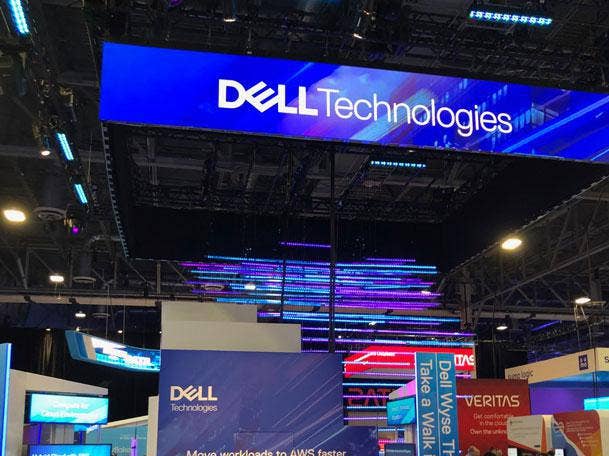
5 Biggest Highlights From Dell’s Q3
Dell Technologies’ financial earnings for its third fiscal quarter showed solid growth in key areas while bread-and-butter infrastructure segments posted sales drop that raised some eyebrows during Dell’s financial earrings report.
“Our storage business was down 7 percent for the quarter, we were disappointed with that result,” said Jeff Clarke, chief operating officer and vice chairman of Dell Technologies, during the company’s third-quarter earnings call with media and analysts last week.
Despite the ongoing COVID-19 pandemic creating economic uncertainty across the globe, Dell was able to generate $23.48 billion in total revenue, representing an increase of 3 percent year over year. Net income for the quarter also reached $881 million, up 60 percent from $552 million one year ago.
CRN breaks down the five biggest takeaways and areas of interest that investors, customers and channel partner should know as the Round Rock, Texas-based infrastructure giant enters 2021.
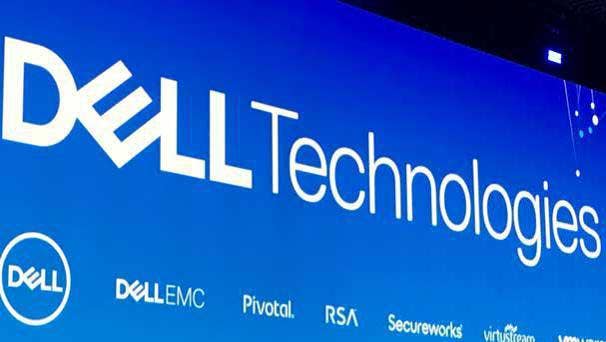
VMware Spin-off Update
This year, Dell Technologies unveiled plans to potentially spin off its 81 percent stake in VMware to current Dell and VMware shareholders in a move to simplify capital structures, improve its credit rating and enhance financial flexibility.
Rob Williams, head of investor relations at Dell, said the tax-free spin-off could drive significant shareholder value while at the same time maintaining the strong partnership between Dell and VMware.
“Both Dell and VMware have publicly highlighted mutual interest and the potential benefits of such a transaction and have engaged on key work streams including mutually beneficial commercial arrangements and Dell‘s expectation of a substantial cash dividend to VMware stockholders in connection with such a transaction,” said Williams, during Dell’s earnings call with media and analyst last week.
Williams said the earliest time this transaction would close would be September 2021, “with an announcement coming between now and then assuming we can come to an agreement.” There also is a possibility that Dell will not do anything with its stake in VMware and would “maintain our current ownership structure.”
Dell did not address any questions during the call related to the potential spin-off. Dell will not spin off its shares of VMware before September 2021 for tax reasons. The company is seeking to get the proposal to qualify as tax-free for federal income tax purposes.
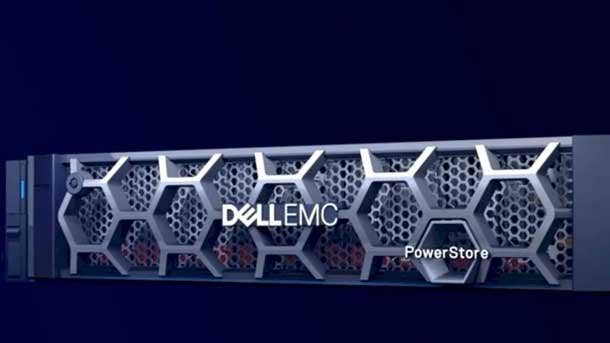
‘Disappointed’ Storage Sales Drop; Big Bet On PowerStore Ahead
Dell Technologies is the dominant worldwide market leader in storage and has been for years. As of the second quarter 2020, Dell owns 27 percent of the global enterprise storage market, more than double any competitor in terms of both revenue and share, according to research firm IDC.
However, Dell’s storage sales have hit a slump over the past year as the company hasn’t reported storage revenue growth since its third fiscal quarter 2020, which ended Nov. 1, 2019.
For its third fiscal quarter 2020, which ended Oct. 20, 2020, Dell’s storage sales dropped 7 percent year over year to $3.86 billion.
“Our storage business was down 7 percent for the quarter, we were disappointed with that result,” said Jeff Clarke, chief operating officer and vice chairman of Dell Technologies last week during the company’s third quarter earnings call. “Our midrange [market] is shrinking. It’s why PowerStore is so important. PowerStore is the catalyst to change our share trajectory in the midrange.”
Clarke said Dell is banking on its new midrange all-flash PowerStore platform to boost storage system sales, while also noting that the COVID-19 pandemic is negatively effecting storage system sales as business’ infrastructure budgets are “under pressure.”
“We’re encouraged by the first two quarters of PowerStore. It was up nearly twice the revenue in Q2 and Q3, and 15 percent of the customers are new storage buyers to the company. That makes us feel very good that we’re on the right trajectory with PowerStore,” said Clarke. “We expect it to continue to ramp up in Q4 and all through next year, and that ramp is the key to our success in growing our storage business.”
It is key to note that orders for Dell’s hyperconverged infrastructure solution VxRail and enterprise storage platform PowerMax grew by double-digits during the quarter.
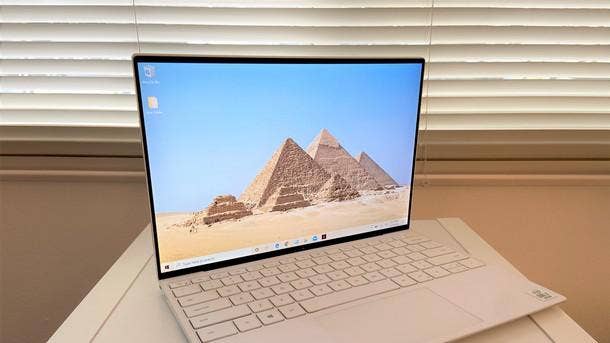
Client Revenue Hits All-Time High
Dell’s overall sales growth during its third fiscal quarter was driven by a huge boost in its Client Solutions Group (CSG), which includes PCs, notebooks and tablets. With a high demand for Dell’s remote work and learnings solutions stemming from the COVID-19 pandemic, the company’s CSG business hit an all-time high.
Dell’s Client Solutions Group generated record revenue of $12.3 billion, up 8 percent year over year, with operating income of $1 billion. CSG consumer revenue jumped 14 percent year over year to $3.5 billion in sales, up roughly $500 million compared to the same quarter one year ago. Dell’s commercial client sales increased 5 percent to $8.8 billion.
“Our client solutions group had an outstanding quarter delivering record shipments, revenue and operating income,” said Clarke. “It’s clear that the PC is still the platform of choice.”
“Our wide range of PCs, including Chromebooks, are providing students everywhere with the essential learning tool they need. The pandemic has expanded consumer use of online purchasing, which is a big area of focus for us,” Clarke said.
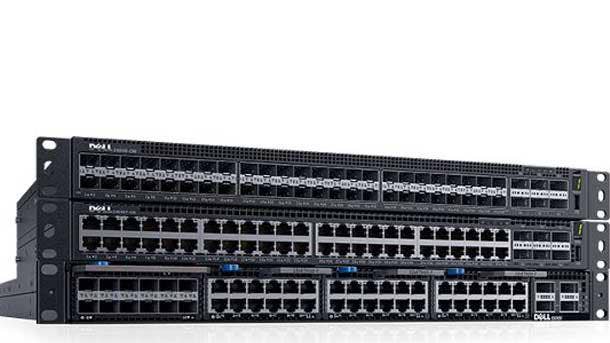
‘Weathering Through’ A Slow Server Marketplace
Unlike Dell’s storage sales drop, the company was optimistic and positive about its server business as it continues to battle with Hewlett Packard Enterprise for global market share leadership. Dell generated $4.16 billion in server and networking revenue during its third quarter, down 2 percent year over year.
“We think we outperformed the market at a minus 2 percent [year over year decline],” said Clarke. “We’re optimistic about what IDC and the other industry pundits talk about for next year. … So this year, we are weathering through a server marketplace that’s down 6 percent … we are looking into calendar year 2021 with [the server market forecast] being up nearly 4 percent.”
Clarke said the enterprise continues to be a challenge in 2020 but Dell is doing well in the SMB market and in its high-value servers for artificial intelligence and machine learning workloads.
“The very large bids continue to be a challenged area for us, but we did see signs where our small and medium businesses did grow. We saw sequential improvement in our server business, which we’re encouraged by. We continue to keep the product line fresh, we keep the product line in price position,” said Clarke. “I look at the server side, we expect to take share.”
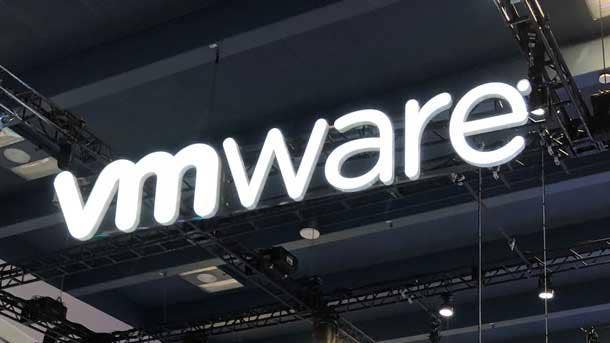
VMware (Majority Owned By Dell) Posts Solid Quarter
VMware, which Dell acquired an 81 percent stake in via its blockbuster $67 billion acquisition of EMC in 2016, continues to flourish in 2020. Dell and VMware hold one of the strongest technology and go-to-market partnerships in the industry with a slew of co-engineered products such as VxRail and Workspace ONE. Additionally, Dell Technologies founder and CEO Michel Dell is VMware’s chairman of the board.
Last week, the Palo Alto, Calif.-based virtualization and hybrid cloud software kingpin reported total revenue of $2.86 billion in its third fiscal quarter, up 8 percent year over year. Subscription and Software-as-a-Service (SaaS) revenue reached $676 million, up a whopping 44 percent compared to one year ago.
“As we continue to navigate through the global pandemic, our any-cloud, any-application, anywhere strategy continues to resonate with our customers,” said VMware CEO Pat Gelsinger, during the company’s financial earnings call last week.
Dell’s Clarke said VMware’s partnership remains “strong” as the two companies continue to build on their cloud capabilities and drive remote working solutions. “We saw dramatic surge from large enterprises, healthcare and the financial sector for work from home and business continuity solutions. This drove strong growth in our commercial client and with our VMware solutions,” he said.